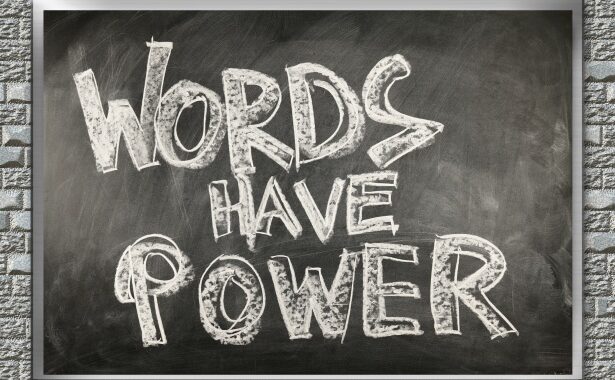If you are like me, you get frustrated listening to a political interview or discussion that seemed like it could be interesting or informative and in the end it provided little if anything? The discussion is diverted, or just ends, often because of overt use of a single word or term. You are stuck at the same place where you started, not allowed to explore new ideas. Maybe that is not a coincidence!
As I read or listen to news and podcasts I am increasingly amazed at the use of words that overtly and powerfully slant a narrative one way or another. Sometimes this can be inadvertent, but much more likely it is subconscious, if not intentional. It is often a technique or weapon. In politics, words are used, misused and omitted to emphasize a pro or con stance on policy, hoping the audience accepts, taking no conscious notice. Too often this is exactly what happens, particularly when our professional media sources pave the way.
Examples are ubiquitous. Here is an example of how the word “radical" is used as such a political weapon. In a recent Bernie Sanders interview with Hasan Minhaj, Bernie lists and summarizes several of his many policy positions. After each he sarcastically repeats the media's overwhelming usual reaction: “what a radical idea”. He then feels he needs to spend time justifying his positions, explaining that these are not “radical ideas” and that some 70% of Americans often support them. Regardless of any support, the labeling as “radical” (one word) often effectively closes any door to possible consideration by many without ever presenting an argument that counters Bernie’s position. As I often say, they dug a hole (with the word/s) and their opponent must now try to verbally climb out of it. This, more often than not, deflects any opportunity for reasonable discussion of issues or policies. The gotcha box has been checked.
The actual definition of a “radical" idea implies something out of the ordinary, not supported by the majority.
Webster's online dictionary defines a radical idea as one that is: very different from the usual or traditional : extreme. b. : favoring extreme changes in existing views, habits, conditions, or institutions. c. : associated with political views, practices, and policies of extreme change.
Since the word “RADICAL” so rigidly paints any discussion of the political policy being discussed, could a more thorough probe of the spelling of the word RADICAL further provide some meaning or clarity on that very policy?
- In our politics we allow the word "radical" to generally be accepted as an unusual or extreme problem of actions by the left (the liberals), seldom is it applied to the actions or benefits of the right (conservatives and the powerful),
- Maybe, simply examining the spelling of the word itself could symbolically reflect what actually exists in (American) politics: The word "RadicaL" begins with an "R" reflecting the political right (where everything starts, the source of many political ills) and eventually or occasionally we may see reactions moving towards the "L" or the political left. This is shocking, it startles us, because getting to the left is generally unusual, so it becomes a big deal (it needs to be suppressed), whereas, we are always immersed in the political radicalism of the right (it is home, the usual, safe). Sadly, we seem to be trained to accept this as the norm, disregarding the fact that the majority of us consistently seek or want something else (on the left). We are taught this is abnormal, and we just don't know how or maybe won't accept the effort and consequences it will take to move from "R" to "L". With little resistance we accept that it is just too radical!
- Forget about the "R" and the "L". What about the rest of the word, the middle letters in the word "RadicaL"? Could they have meaning, maybe even suggest a system for change or movement toward "Ĺ", towards what the people often want? One initial reaction for meaning from the letters ADICA is: "All Decisions Involve Communal Actions". WOW, immediately a simple straightforward plan, a map is spelled out for us. This is surreal, or is it just some new superstition or conspiracy? It is too “radical” to even consider. We better ignore it. It actually sounds like “socialism”! Oops, another one of those words. We are approaching another hole. How can we ever make any real changes if we are constantly digging our way back to ground level? Maybe we have discovered THAT IS THE POINT.
This has been a fun way for me to focus on the “problem of words as weapons” in our political discourse, a way for me to vent one of my frustrations with the norms of the political game we seem to be forced to play. Amazingly the word “radical” was the first powerful word I thought of and it easily fit my biased needs as I meandered along following my unplanned thoughts. Seriously, I hope we can more actively and consciously learn to recognize the power of words. We need to be more alert, more critically aware and defensive of the effects words (their inclusion and/or omission) have on us. Maybe then, we could allow ideas like those suggested by ADICA and other new ideas to become possible and merge into our political norms.
